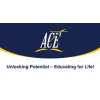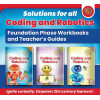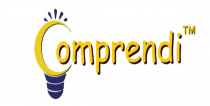Education - A shared responsibility?
Education is often described as a shared responsibility. President Obama said in a speech in 2011. “That’s why reforming education is the responsibility of every American – every parent, every teacher, every business leader, every public official, and every student.” This idea is also often articulated in a popular slogan : “It takes a village to educate a child.”
The parties that are usually mentioned to share this responsibility are parents, the state teachers and business. These parties have different strengths and weaknesses and motivations:
- Parents are the only people that have an intimate personal relationship with their children and have sacrificed much for their children. Because of this they have the best understanding of the needs of the child and have the best interest of the children at heart.
- The state sees education as a means to achieve political ends. On 20th May 2004 Ms Mmule Madonsela, senior officials responsible for home education in Gauteng, told a meeting of homeschoolers in Johannesburg: “Education is a political game”. Her boss, Ms Tidimalo Nkotoe, stated in a Carte Blanche programme on 10th April 2004 that home education must be controlled because uniformity is the goal: “We are gunning for the same critical outcomes. We are gunning for the same South African citizen.” On 20th October 2005 Mr Siphosezwe Masango, MEC for education in Mpumalanga, addressed a congress of the teachers’ union SADTU as “fellow combatants”. Masango encouraged teachers to indoctrinate children to “be properly formed and moulded to our revolutionary ideas”. Neeshan Balton from the Ahmed Kathrada Foundation's said in 2015 : "Schools are meant to be laboratories of nation-building, not enclaves of outdated apartheid thinking ,…"
- In it’s newsletter, the Pestalozzi Trust describes the reason why business is interested in home education as follows : “If the average homeschooler spends only six thousand Rands per child per year, it means that 57 000 homeschoolers spend more than three hundred million Rand (R342 000 000) on materials and services for home education. If all homeschoolers were compelled to use only “approved” homeschooling programmes (which are more costly than other approaches), this figure would rise to more than half a billion Rand per year.”
- In the same newsletter, the reason why teacher unions are interested in home education as follows : “If there are 57 000 home learners, there would be about 130 empty schools if the schools existed. However, that also means that there are about 2000 potential teacher posts that are vacant. And any labour union that discovers 2000 potential posts in its sector that are vacant, must of necessity take note of it and take steps to regain those posts.”
According to the South African constitution the child’s best interest are of paramount importance in all matters concerning a child. If this is indeed the case, then parents are the only people who can make any decision concerning their children, because they are the only ones who understand the needs of their children and have the best interest of their children at heart. Not the state that views a child as a pawn in a game of politics. Not business that views the child as a source of profit. Not teacher unions that view children as instruments to create jobs .
The only way in which parents, the state, teachers and business can share the responsibility is when all parties acknowledge that only the parents understand the best interest of their children, and that any party involved in education is there to serve the parents. Parents must be acknowledged as the highest authority when it comes to making educational choices. Parents do not need to justify their educational decisions to any of the other parties, nor even inform them.
Although the state claims that education is a shared responsibility, it seldom accepts responsibility when things get tough. When a child does not fit into the school system, does the state adapt the school system in order to meet the needs of an individual child? When a child commits a crime, does the department of education take responsibility for this, because children learn values from their peers at school? When a child is injured at school, does the department of education take full responsibility of the medical costs? When a child gest addicted to drugs sold at school, does the school take responsibility for the consequences and treatment costs?
The state only becomes responsible for the education of a child, once it has been proven in court that a parents are neglecting their responsibility to provide their children with an education that is at least the same standard as the education provided by the state in public schools. The legal principle that citizens are considered innocent unless proven guilty also applies to education. Therefore, it must be assumed that parents are providing their children with an education, unless objective prove is provided that this is not the case. Any policy that requires parents to provide proof that they are educating their children before they are allowed to homeschool, is in conflict with the constitutional principle of innocent until proven guilty.
Legal & Research
Centres
Homeschool ABC
Support
Curriculums
Has no content to show!

































Comments 1
ICT analyst Adrian Schofield makes the statement that "...the best interests for children in SA would be a collective responsibility that touches many government departments.". See http://goo.gl/Z7A6yb